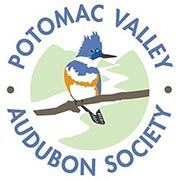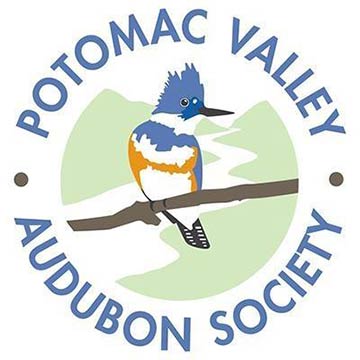The Potomac Valley Audubon Society not rehabilitate birds or wildlife ourselves, we do have a wildlife rescue coordinator, volunteer Diana Mullis, who can give advice over the phone and help coordinate transportation of wildlife to a rehabilitation facility or certified veterinarian. Diana can be reached at 304-754-3753.
The following rehabilitation centers can accept birds, but not other wildlife:
- Avian Conservation Center of Appalachia in Morgantown, WV
- Blue Ridge Wildlife Center in Boyce, VA
- Owl Moon Raptor Center in Boyds, Maryland – only accepts raptors (i.e. hawks, owls, etc.)
- Second Chance Wildlife Center in Gaithersburg, MD
- Wildlife Vet Care in Millwood, VA
Before you call, here is some information that may help:
Sick/Injured Bird of Prey (Hawks, Eagles, Owls):
If you must handle or move a Raptor, first cover the bird with a jacket or towel/blanket, covering its head and eyes so that it cannot see you, and protect yourself by wearing heavy gloves and safety glasses. While keeping the bird covered, gently fold the bird’s wings into its body with your two gloved hands and gently roll it in the blanket to restrict its ability to move. Keep the head covered so that it can’t see, but can breathe. Gently but firmly lift the bird into a transport container. Even a seriously injured raptor is potentially dangerous. Wild birds do not understand that we are trying to help and will defend themselves. They are quite unpredictable, and you should be especially aware of their sharp beak and talons. Never feed an injured Raptor unless instructed to do so by a licensed professional. The best way to transport a raptor is in a plastic dog or cat kennel, or in a sturdy cardboard box with some ventilation holes and the top closed. Otherwise it can further injure itself. Handle an injured raptor as little as possible. Until the bird can be transferred, provide it with a dark, quiet, calm, warm environment. Darkness has a calming effect on birds. Extra care should be taken to keep the bird away from children and pets. Do not keep a raptor any longer than is necessary.
Baby birds:
Put baby birds back in the nest whenever possible. Birds do not have a strong sense of smell, so the smell of your hand will not interfere with the parents’ care for the bird. If the bird is fully feathered and on the ground, it may be fledging. The parent is likely nearby “coaching” and feeding the young bird. Keep cats and dogs indoors until the bird leaves the area.
Baby Deer:
Fawns should be left alone. The best thing you can do for it is to leave it where you find it. Mother deer feed babies at dawn and dusk, but the babies are left alone for the day. The mother knows exactly where to find its baby at the end of the day. If you have already moved the fawn, you should take it back as close as possible to where you found it and let it be. The mother’s instinct to nurse the baby will outweigh its concern over any remaining human smells. The mother will return in the evening and will find the fawn by sight, smell, and sound. It is not legal to rehabilitate deer or other mammals in West Virginia.
Baby bunnies or other small mammals:
Truly the best thing you can do if you find any of these animals is to leave them where you find them. If a nest is disturbed by a lawn mower or other factor, you can place them back in the nest and the parent will likely return and move them to safety.

